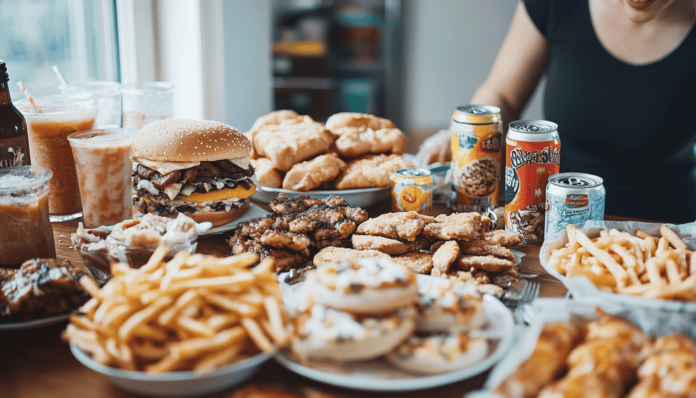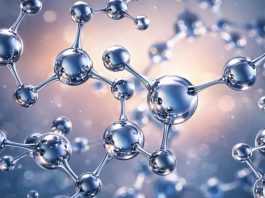Maintaining sharp and healthy vision is crucial for overall well-being. Surprisingly, the foods we consume can have a direct impact on our eye health—sometimes in unexpected ways. In this article, we’ll explore seven foods that can harm your eyes and five powerhouse foods that can protect and enhance your vision. Small dietary changes can make a big difference in maintaining healthy eyesight.
How Diet Affects Eye Health
Your eyes require specific nutrients to function optimally, including vitamins A, C, E, lutein, zeaxanthin, and omega-3 fatty acids. Antioxidants help combat oxidative stress, a major factor in conditions like cataracts and age-related macular degeneration (AMD). Conversely, certain foods can exacerbate oxidative stress, lead to inflammation, or contribute to conditions like diabetes, which affects vision.
7 Surprising Foods Hurting Your Eyes
- Sugary Beverages
Loaded with sugar, these drinks spike blood glucose levels, increasing the risk of diabetic retinopathy. Over time, elevated sugar levels can damage the blood vessels in the retina, leading to vision loss. - Processed Meats
High in sodium, processed meats like sausages and bacon can increase blood pressure, which in turn affects the small, delicate vessels in the eyes, potentially leading to hypertensive retinopathy. - Trans Fats
Found in margarine, packaged snacks, and fast food, trans fats can lead to inflammation and increase the risk of AMD by negatively affecting the retina’s health. - Fried Foods
The unhealthy fats in fried foods can generate oxidative stress, harming the cells in the retina and contributing to chronic conditions like cataracts. - Alcohol
Excessive alcohol consumption leads to dehydration and nutrient deficiencies, particularly vitamin A, which is essential for maintaining clear vision. - White Bread
High-glycemic foods like white bread can cause blood sugar spikes, which may accelerate retinal damage, especially in diabetics. - Artificial Sweeteners
Though marketed as a healthier sugar substitute, some artificial sweeteners have been linked to potential risks of glaucoma and retinal complications in excessive amounts.
How These Foods Affect Vision
Harmful foods contribute to conditions like macular degeneration, cataracts, and dry eyes. Elevated blood sugar or oxidative stress from poor diets can accelerate aging-related vision decline. Long-term exposure to such foods makes the eyes more susceptible to damage and disease.
5 Foods That Save Your Eyes
- Leafy Greens
Spinach, kale, and collard greens are packed with lutein and zeaxanthin, two powerful antioxidants that protect the retina and reduce the risk of AMD. - Fatty Fish
Salmon, mackerel, and tuna provide omega-3 fatty acids, which reduce the risk of dry eye syndrome and support overall retinal health. - Citrus Fruits
Oranges, lemons, and grapefruits are rich in vitamin C, an antioxidant that helps prevent cataracts and slows AMD progression. - Carrots
The beta-carotene in carrots converts to vitamin A, essential for good night vision and preventing dry eyes. - Nuts and Seeds
Almonds, walnuts, and sunflower seeds are high in vitamin E, protecting the eyes from oxidative stress and reducing the risk of cataracts.
Practical Tips for a Vision-Friendly Diet
Incorporate leafy greens into your salads, snack on nuts instead of chips, and opt for grilled fatty fish over fried options. Substitute sugary drinks with water or herbal teas. Gradually reduce processed and high-glycemic foods from your meals.
Lifestyle Factors Beyond Diet
Diet is just one aspect of maintaining healthy eyes. Ensure regular eye exams, protect your eyes from UV rays with quality sunglasses, and limit screen time to reduce strain.
Recognizing Symptoms of Poor Eye Health
Common symptoms include blurry vision, frequent headaches, and difficulty seeing in low light. If these persist, consult an eye specialist to address potential dietary or health-related causes.
Case Studies: Eye Health and Diet
Research shows individuals who switched to diets rich in leafy greens and omega-3s experienced improved vision health and reduced symptoms of dry eyes. Conversely, those who indulged in high-sugar diets reported worsening vision over time.
Conclusion
Your diet plays a pivotal role in eye health. By avoiding harmful foods and embracing nutrient-rich options, you can protect your eyes and enhance your vision. Small changes today can lead to a lifetime of clearer, healthier sight.
FAQs
- Can diet reverse existing eye conditions?
While diet can’t fully reverse conditions like AMD or cataracts, it can slow their progression and improve overall eye health. - How much vitamin A do I need daily?
The recommended daily allowance is 700-900 micrograms, but consult a healthcare provider for personalized advice. - Are supplements necessary for eye health?
Supplements can be beneficial if you have a deficiency, but getting nutrients from food is the best approach. - Can artificial sweeteners damage vision permanently?
There is no conclusive evidence of permanent damage, but moderation is key to minimizing risks. - Why is hydration important for eye health?
Hydration prevents dry eyes and supports overall cellular function in the eyes. - What’s the best way to reduce screen strain?
Follow the 20-20-20 rule: every 20 minutes, look at something 20 feet away for 20 seconds.





